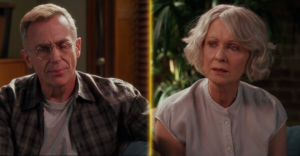Taxi Driver: 10 Reasons Travis Bickle Is The Quintessential Antihero

As a crime film, as a vigilante film, and as a psychological thriller, Taxi Driver is a classic on all counts. At the center of Martin Scorsese’s 1976 masterpiece — and the reason it succeeds as an entry in so many different genres — is Travis Bickle, its protagonist (and, in some senses, antagonist), brought to life spectacularly by one of Robert De Niro’s all-time greatest performances.
Travis is a New York cabbie who becomes so disgusted by the crime and corruption in the city around him that he decides to take matters into his own hands. Here are 10 reasons why Travis Bickle is the quintessential antihero.
10 He Has A Point

While Travis’ methods are questionable, his motivations are understandable. He looks around New York and he sees streets infested with crime. Underage girls are forced to have sex for money, trash is piling up around the city, and the politicians are completely out of touch with the common man.
He believes that something has to be done to combat this corruption, and he’s absolutely right. He does everything in his power to affect the change he wants to see.
9 He’s Arguably No Better Than The Bad Guys

Travis may think of himself as a hero when he goes out and shoots pimps in the chest, but he’s arguably no better than the criminals he seeks to bring to justice. He operates outside the law, based entirely on his own moral compass, killing whomever he believes deserves it.
He’s made himself judge, jury, and executioner, which may not be as bad as pimping out 12-year-old girls, but it’s in the same category.
8 His Isolation Forces Him To Dwell On Negative Thoughts

If Travis had more friends to spend his time with, he might not have fallen into the psychological pit that led him to embark on a quest for vigilante justice.
Loneliness is a major theme in Taxi Driver, with Travis’ isolation leaving him alone with his thoughts and forcing him to dwell on negative impulses, eventually leading to irreversible actions.
7 His Voiceover Diary Entries Gives Viewers A Window Into His Mind

Throughout Taxi Driver, Travis keeps a diary, and the audience hears his diary entries in the form of voiceover narrations. These voiceovers provide a window into Travis’ mind that give his vigilante actions invaluable context.
If viewers didn’t hear what Travis was thinking, then his sudden bouts of violence would be a little harder to digest. The film’s violence isn’t easy to watch by any stretch, but it is easy to understand where it’s coming from.
6 He Believes In His Cause

For all intents and purposes, Travis Bickle is a bad guy. The audience isn’t expected to go along with Travis’ actions and champion his vigilante crusade. But what De Niro plays so well is that Travis truly believes in his cause. He thinks he is a noble hero and that killing is the best course of action.
5 His Violent Behavior Is Influenced By His Military Background

At the beginning of Taxi Driver, Travis has just returned from serving in Vietnam. He takes a cabbie job because he can’t sleep at night, a clear-as-day sign of the PTSD that Travis has brought home from the war.
When he becomes disillusioned with the crime-infested metropolis he inhabits, the reason Travis decides to take up arms and kill the criminals responsible for disturbing social order is that that’s what he was taught to do as a U.S. Marine while serving.
4 He Slowly Loses Touch With Reality

Travis Bickle does not live in the real world. He lives in his own head, letting his deceitful delusions get the better of him, and he spends the movie slowly losing his grip on reality.
The audience sees from his almost comically disastrous relationship with Betsy — taking her to a porno theater on their first date etc. — that he has no social skills.
3 He’s Not A Very Good Vigilante

Paul Schrader’s script and Martin Scorsese’s direction of Taxi Driver don’t try to convince the viewer that Travis is a one-man army who poses a real threat to the world of crime. By all accounts, he’s not a very good vigilante.
He doesn’t last very long in the climactic shootout, and he’s spotted by Secret Service agents long before he can get anywhere near Palantine when he attempts to assassinate him. This lack of finesse makes Travis feel more like a real person.
2 His Happy Ending Feels Wishful And Sensationalized

Travis Bickle gets a happy ending in Taxi Driver. But audiences have taken that happy ending with a grain of salt, because it all seems highly unlikely. After Travis is left bleeding out in a brothel crawling with cops, he’s cleared of all charges and hailed as a hero. Even Betsy takes him back.
This doesn’t seem like a natural conclusion to the story. Rather, it seems like Travis’ wishful, sensationalized version of what could happen, imagined in his dying moments.
1 He Descends Into Hell

The final moments of Taxi Driver seem to suggest a descent into hell as Travis drops off Betsy and drives away, looking at her in the rearview mirror, and then does an alarmed double take, like his happy ending has been interrupted by a greeting from the devil.
That’s just one reading of the ambiguous ending, but Travis’ descent into hell seems pretty overt (especially since Scorsese is usually pretty heavy-handed with Catholic symbolism). The whole movie could be seen as the story of Travis succumbing to his inner demons.
About The Author


















